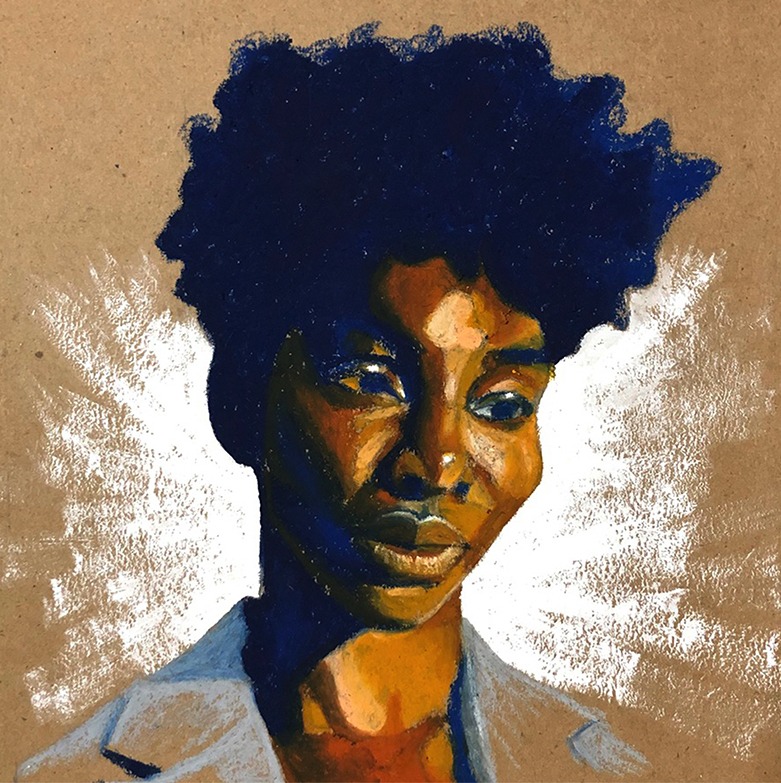Written by Spencer Washington.
Art by Pia Muhihuart
To see yourself represented in a form of art is the highest value of care. I never really felt represented in mass media but I reached middle school and came across tv shows like Degrassi or South of Nowhere, that showcased LGBT youth in their individual worlds. While the tv shows were helpful to see queer representation on screen because it was not discussed in my household. Beyond visual rep like movies and shows, I would source our LGBT+ books that I could get access to.
Reading Cris Beam’s ‘I Am J’, a story about a mixed (half Black, half Hispanic) transgender boy named J, trying to come to terms with the world around him in New York City, was the first memory I have in my pre teens of being seen. Back in the early 2010’s having come to terms with my own gender identity; I was combating gender dysphoria, a sexuality crisis for the fifth time that month and overall, my pre-teen years.
The only thing I knew for sure was that I didn’t see myself making it past age sixteen.
I learned of the word transgender through another fictional character named Adam Torres from the show Degrassi, another early 2010’s classic pop culture staple. I didn’t think it was possible for girls to be boys, I’d only heard of transgender women but rarely transgender men. Sourcing for any type of materials from Youtube stories, trans guides on Tumblr, to local book reviews that would be of usage I picked up ‘I Am J’ in a local bookstore.
I didn’t understand what it meant to be a boy myself, but I did know of many boys and men around me that I could mirror behaviors from. Thus began my social transition from female to male. I took mental notes from the way Beans would protraye’s J’s gender presentation. Low snugged jeans, size XL shirts, layers, layers, and more layers than the sea. I had used ace bandages to bind. I’d attempt to lower my voice by force and even tried out different typical boy names until I found one I liked. I settled on Spencer because I wanted a full separation from my given name. The name Spencer came from my favorite childhood show, iCarly, based on the big brother Spencer—who I saw as this cool, funny, older figure. I wanted to embody that type of manhood.
At a time where books for queer youths are being banned across the USA, these resources were invaluable to me and should be accessible to everyone.
Beam is a cisgender woman writing a trans character, orchestrating his story as a tragedy rather than the coming-of-age story that it is ‘I Am J’ depicted trans youth as being characterized by isolation and trauma, rather than individualizing the trans experience. Trans characters so often fall victim to this despite their cisgender counterparts being granted more fulfilling stories in YA fiction—mainly queer themed YA.
It sent the message that being a trans teen meant that you were destined for misery until adulthood—if you even reached the age of eighteen. This was certainly the case for J, as he begins the story isolated, ridiculed, and filled with self-hatred. It isn’t until he turns 18 that things start to look up for him- soon afterward he’s accepted into college and is able to start hormone therapy. Though transgender youth do face many of these same issues, this shouldn’t be the main narrative that is told to them.
I didn’t understand what it meant to be a boy myself, but I did know of many boys and men around me that I could mirror behaviors from.
By the time I was a freshman in high school, I had used this book as a literal source of what passing meant and what would happen if I couldn’t become invisible. Believing that being assumed a cis, queer man was safer than being known as a trans queer one. Upon being outed by a trusted classmate I was subjected to bullying by my peers. The allyship at that period I had was the principal, my homeroom advisor, and my book.
‘I Am J’ wasn’t a perfect story for its time. J was a deeply flawed and insecure young boy, yet he was determined to become the man he envisioned in his head despite all the obstacles he faced. I wanted that same feeling of freedom to be myself on my own account, not others.
It was the story I needed access to at that time.
About the Author
Spencer Q. Washington (they/he) is a Black queer person that is a lover of all things coffee and storytelling. They focus on topics centered around the Black LGBT+ experience. They want to see an increase in Black trans masculine stories across media types.
Follow on IG: @wordsbyquentin | Follow on Twitter: @

